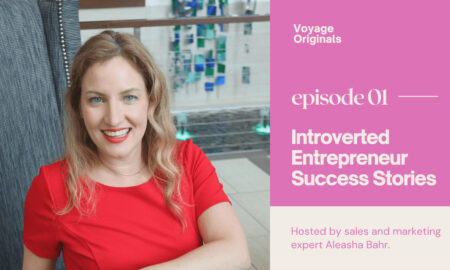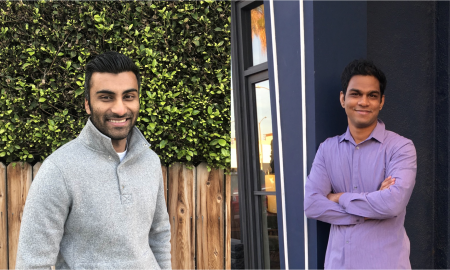

Today we’d like to introduce you to Sebastian Hammer.
So, before we jump into specific questions about the business, why don’t you give us some details about you and your story.
The company was founded by myself and a friend in Copenhagen, Denmark in 1994. We had both begun our careers working for an organization that provided technology support for libraries, and we really liked the technical challenges and especially the mission of the library community. Librarians are endlessly curious about technology and like to think about ways that software can be leveraged to provide better services and value for their users. This makes for a fun and satisfying work environment. When we started the company, our idea was to build software for libraries and other information-heavy organizations, and to fund that work by providing consulting and support services.
Over the years, we slowly gathered a team around us, and created a culture of technical curiosity and innovation. We became the people you would think of if you needed something built that did not fit any existing category. At the same time, we became closely associated with the open source software movement — the idea that you can give your software away for free and still make a living by doing work associated with that software. Doing so allowed us to form unique, close working relationships with a number of important organizations around the world. One of them was the Library of Congress, which was an early adopter of some of our software, and which would often work with us to improve things.
Such international relationships were crucial when I moved to New Hampshire with my American wife and our two children in 2004. She had lived in Denmark for over a decade, but it was time to come home, and rather than leave the company that I had started, I saw an opportunity to deepen our relationships with organizations in the US.
Eventually, this led to bringing in a CEO and business partner, Lynn Bailey, who is based in Boston. The company had at that time become almost completely virtual — we are 20 people in seven different countries, most of us working from home.
There has been a natural tendency for us to focus our hiring in the Eastern half of the US, and just over half of our US-based staff is based in New England.
Massachusetts has a culture that feels very friendly for small businesses, and we have often benefitted from the support and events offered by organizations like MassTLC (Mass Technology Leadership Council) and the MSBDC (MA Small Business Development Center).
Because Boston is centrally located for us, and easy to travel to from Europe as well, it has become a natural hub for our decentralized organization.
Moving to the US and experiencing the culture of entrepreneurship here has been an amazing experience for me personally, and I think the company, through this transition, has managed to combine a uniquely Scandinavian sensibility with an American sense of curiosity and energy. We have evolved a spirit in the company that draws on many different cultures, and somehow that fits just right where we are, in Boston.
We’re always bombarded by how great it is to pursue your passion, etc – but we’ve spoken with enough people to know that it’s not always easy. Overall, would you say things have been easy for you?
You don’t survive as a business for almost a quarter century without experiencing some ups and downs. We lived through the dot-com boom working in a corner of the information industry that did not invite much hype and interest — something I am grateful for today — and we survived the subsequent crash. Libraries today are under enormous pressure to change and this creates both anxiety and excitement, and we have had our share of both over the years. Today, we are working with a global community of libraries and companies to attempt to re-shape the entire approach to technology, to help make libraries more nimble and flexible.
For me personally, moving to the US and working to support my kids in a new environment while also shepherding the company through the upheaval of my leaving was probably one of the greatest challenges of my working and personal life. Finding just the right person and business partner in Boston, and working together to redefine the company as a truly global organization was an amazing experience, but it wasn’t easy, and a successful outcome was never assured.
Becoming a multinational company, with legal presence in two different countries and staff located across the world, has created its own set of very unique challenges — typically the domain of much, much larger companies. We found that while the US, and Massachusetts in particular, provide truly excellent support for small businesses, when it comes to managing the operations and finances of a global company, you really are on your own. We have been lucky to find good and creative people to assist us over the years, but it has never been easy. The peculiar construction really has been driven very much by my own personal journey, and perhaps another person would have been smarter about avoiding all of the ensuing complexity. But the new culture and energy that has emerged from the change has made it all worthwhile.
So, as you know, we’re impressed with Index Data – tell our readers more, for example what you’re most proud of as a company and what sets you apart from others.
We specialize in writing software for companies and organizations that have a serious need to deal with lots of complex, structured information. Large academic libraries, who maintain vast physical collections and even larger electronic ones, have become our home turf, but a lot of the technologies and ideas that have come out of the library space really can be applied almost anywhere. Libraries pioneered the idea of structured information that could be shared across organizational boundaries, and many other industries are just now catching up.
Because of the amazing team that we have gathered, and perhaps because of a certain restlessness on my own part, we have never settled down to do just one thing. We are always curious about how we can push our own boundaries and challenge ourselves to solve difficult problems in new ways. Over the years we have become known in our industry for having unique talents in this regard, and so we’re often called in when others give up, when something entirely new has to be created.
Like many software developers today, we have always worked a great deal with free and open source software, and we have frequently contributed our own work to the broader community. I have become very aware of the transformational power that a gift of software can have. If you build a tool to make something easier than it was before, then you, as an individual developer, can exert a tremendous influence. I have come to view the creation of software as a form of communication, a form of activism, even, and I feel that through our unique history and from the vantage point of libraries and their role and ambitions, we are finding some new paths to provide value to the community at large. It is always a gift to feel that you are contributing something that is uniquely ‘you’, something that represents your experience and background and which has value to other people.
So, what’s next? Any big plans?
To be honest, I’d like to see us continue to get better and better at what we do. I know that many people start and run companies with a hope of some big deal, or perhaps someday selling out and retiring. But for me, Index Data has always felt more workmanlike: we are in it for the long haul. We are curating a certain work culture and a set of skills more than any particular gadget or idea. Our reach and ability has consistently grown, and it is always fascinating to see where we might be able to go next.
Libraries are continuously changing their role, but that’s not all. There are profound changes afoot in how research and scholarship are conducted, how researchers share their results and build on them. I think we will see some remarkable innovation in the intersection between research and information technology over the next decade, and I hope that our work will position us to be part of all that.
Contact Info:
- Address: 8 Faneuil Hall Marketplace
Boston, MA 02109 - Website: www.indexdata.com
- Phone: (617) 939-9623
- Email: info@indexdata.com








Image Credit:
Index Data staff
Getting in touch: BostonVoyager is built on recommendations from the community; it’s how we uncover hidden gems, so if you know someone who deserves recognition please let us know here.

















